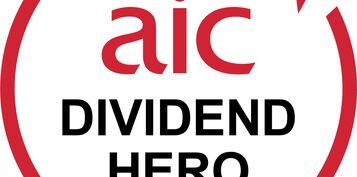Reserves of strength
David Prosser explores investment companies’ advantages for smoothing dividends through tough times.

 When the pressure is on, tempers fray easily – and social media is hardly a channel that encourages restraint. Over the course of recent days, I’ve watched two investors swap increasingly unpleasant insults via Twitter in a row that started with a mild disagreement over investment strategy. Their argument concerned the merits of investment companies over other types of fund to income-seeking investors.
When the pressure is on, tempers fray easily – and social media is hardly a channel that encourages restraint. Over the course of recent days, I’ve watched two investors swap increasingly unpleasant insults via Twitter in a row that started with a mild disagreement over investment strategy. Their argument concerned the merits of investment companies over other types of fund to income-seeking investors.
In fairness, you can see why people are getting angry. For more than a decade now, interest rates have been stranded at levels that would once have been unthinkable. Anyone dependent on savings income has been forced to look beyond banks and building societies, with equities often coming to their rescue. But now even that source of income is drying up, with so many companies slashing dividends in response to the economic shock of Covid-19.
Back on social media, one investor pointed to the growing consensus that investment companies have an important role to play in this crisis. His sparring partner was unconvinced, arguing that if companies are cutting their dividends, investment companies will be affected too – that they do not have access to some sort of magic money tree. The exchange descended into a less constructive discussion pretty rapidly.
So, who was right? Well, there was some truth on both sides. It is certainly the case that investment companies are not conjurors; when the businesses in their portfolios cut or cancel their dividends, there is less income to pass on to investors. An investment company and an open-ended fund that own identical portfolios for, say, five years, will earn identical dividends from which to pay out income.
Does this mean that investment companies’ appeal to income seekers is based on some sort of confidence trick? Not at all. The attraction of an investment company from an income perspective lies not so much in how much income it pays out, but in how it makes its distributions.
The key here is that most collective investment funds are duty bound to pay out all the portfolio income they earn to their investors. Investment companies, by contrast, have the option of holding some of this income back in order to build up a dividend reserve fund. This fund can then be used to pay dividends to investors in years when the investment company earns less on its own portfolios.
In other words, investment companies do not necessarily pay out more income over a given period. But they do offer consistency – a smoother flow of income even when the underlying portfolio may be enduring a rollercoaster ride.
Investors, of course, have to decide what they want. In good years for dividend earnings, there is a good chance an open-ended fund will pay out more income than an investment company with similar holdings. The reverse is true in more troubled times – and this year’s Covid-19 crisis is an extreme example.
There isn’t a right or wrong answer here. But often, investors who are dependent on their savings for income are looking for consistency rather than the highest possible absolute level of income. In an income drawdown fund, for example, it is likely you will prefer to be able to access a regular flow of pension income, rather than enjoying feast in some years but having to put up with famine in others.
Naturally, neither social media protagonist was prepared to countenance these more nuanced arguments. But it’s a debate that advisers and their clients will need to have in the coming months. The dividend drought is not going away any time soon, so income seekers need to think about how best to respond.
One final complication here is that investment companies, subject to the agreement of their shareholders, are also allowed to make income distributions from capital – something that is off-limits to most funds. Again, this is no free lunch, since investors’ capital is depleted. But it is another flexibility of which some investors may want to take advantage.






